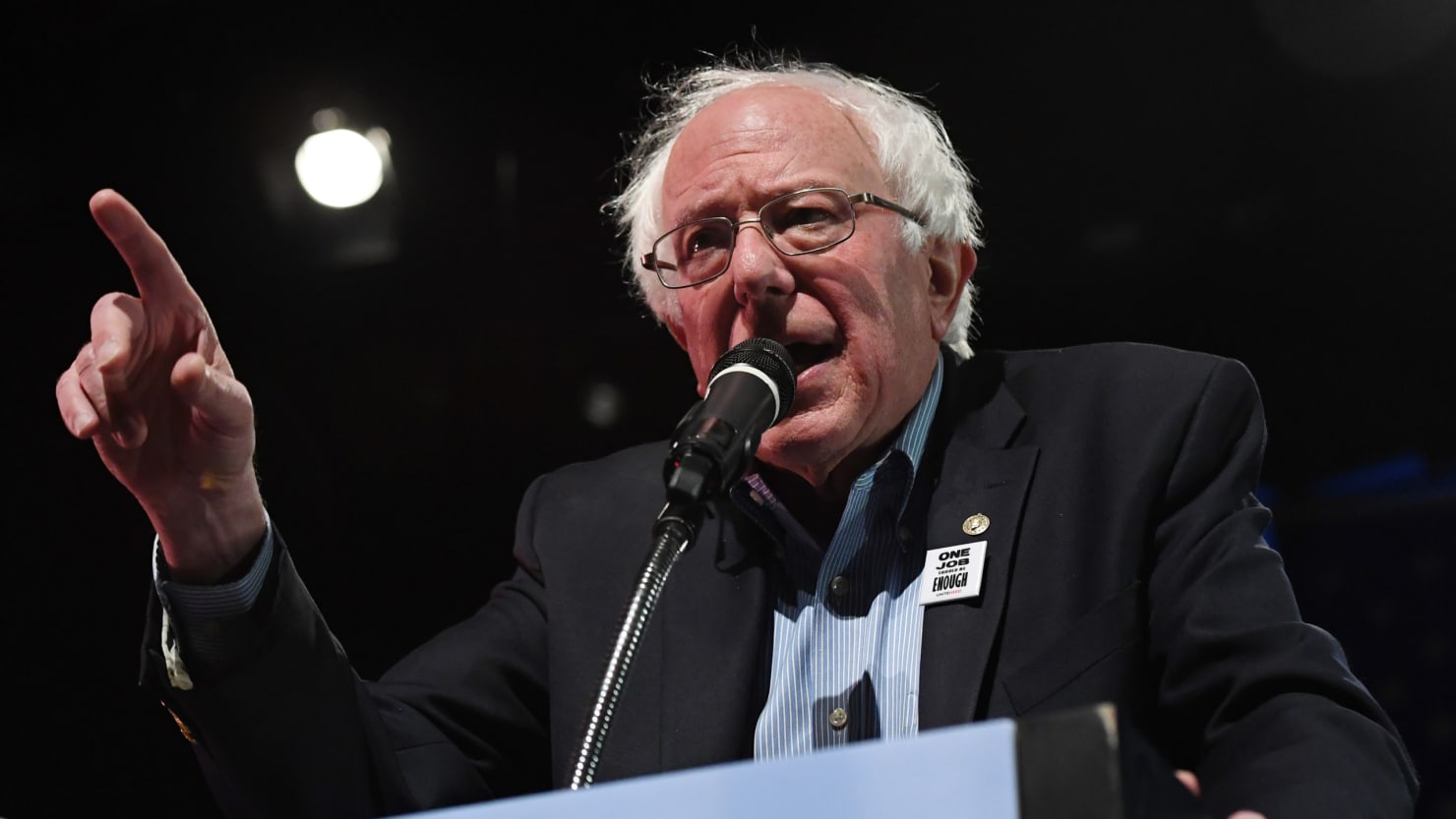As we reported over the weekend, it appeared that Vermont Senator Bernie Sanders was inching closer to launching a 2020 Presidential campaign by recording an announcement video. Despite denies from staff when asked to comment on the development, Sanders posted the video today and announced he was, in fact, seeking the Democratic nomination in 2020.
The news has been confirmed by Vermont Public Radio:
Sanders said he is running to oppose President Donald Trump, and to enact many of the progressive ideas — including universal health care coverage, a $15 minimum wage and reducing student debt — that he championed in 2016.
“I think the current occupant of the White House is an embarrassment to our country,” Sanders said. “I think he is a pathological liar… I also think he is a racist, a sexist, a homophobe, a xenophobe, somebody who is gaining cheap political points by trying to pick on minorities, often undocumented immigrants.”
Sanders said his campaign hopes to enlist one million people in a “grassroots movement of people prepared to stand up and fight.”
Sanders acknowledged he will encounter a “very different campaign,” than in 2016, when he emerged as the sole serious challenger to former Secretary of State Hillary Clinton and won 23 primaries and caucuses.
A diverse Democratic field includes more than a dozen candidates who have either formally declared or expressed serious interest. The challengers include five of Sanders’ colleagues in the U.S. Senate — Cory Booker, Kirsten Gillibrand, Kamala Harris, Amy Klobuchar and Elizabeth Warren.
When asked by VPR’s Bob Kinzel about concerns that he no longer best represents “the face of the new Democratic Party,” Sanders, 77, said:
“We have got to look at candidates, you know, not by the color of their skin, not by their sexual orientation or their gender and not by their age,” Sanders said. “I mean, I think we have got to try to move us toward a non-discriminatory society which looks at people based on their abilities, based on what they stand for.”
This move is unsurprising to any political watchers since Bernie’s campaign never really ended in 2016. He has kept up the enthusiasm on his team and kept up his profile taking shots at Donald Trump over the past couple years.
Furthermore, Bernie’s polling numbers continued to indicate a decent amount of support within the party, second, right now, to Joe Biden in Iowa caucus polling.
Bernie’s 2020 Announcement Video
Based on his announcement video, his 2020 platform will closely resemble his 2016 platform, only now he has a real target to take political shots at in Donald Trump. For Democrats in the last cycle, coming off 8 years of Barack Obama made it harder for them to argue that they would be doing things differently or better than the prior administration.
Now, however, with President Trump entering his third year in office, Democrats have political opposition in the White House from which they can draw contrasts.
Bernie’s Path to the Nomination
He came very, very close in 2016, and many of his supporters argued at the time, and rightfully so, that the process last time around was bent heavily toward giving Hilary Clinton the nomination and intentionally made it hard for other candidates, Bernie included, to get traction enough to win the nomination.
How will 2020 be different? FiveThirtyEight details a path for Bernie to the 2020 Democratic nomination, but it won’t be easy:
Sanders also may have a leg up in early primary states like Iowa and New Hampshire, where all-important local activists play an outsized role in building candidate momentum. Sanders knows them, and he won’t have to do as much as others to build up grassroots support.
But Sanders’s 2016 success could also be the makings of his greatest 2020 challenge. When he entered the race in 2015, it was in large part to push his progressive left ideas. Other politicians picked up on the fact that Democratic voters liked the big ideas that Sanders was selling, and now the 2020 field is packed with contenders who are campaigning on platforms similar to his 2016 campaign.
…
Sanders also would need to work to improve his performance with black voters, a crucial demographic in the Democratic primary.
In 2016, Clinton and Sanders split the white vote, but she did better among black voters overall, though young black voters trended toward Sanders. 2020 will likely be a whole different ballgame when it comes to courting the black vote. The field has two top-tier contenders who are black — Harris and Booker — and Joe Biden could hold some appeal given that he served as vice president under Barack Obama.
Bernie has some work to do if he’s going to fight his way to victory in 2020. When he ran against Hillary Clinton for the nomination in 2016, he had the left-learning progressive lane basically to himself. Hillary tried a few times to out-flank him, but her politics lie closer to a traditional Democrat than a “Democratic socialist” as Bernie self-describes.
The other issue, as mentioned by FiveThirtyEight, is electability. Bernie may be too far left to win a national campaign, or so the conventional wisdom has been written. It may take a candidate, supporting his policies, but packaged in such a way that they seem less extreme. It’s arguable that Barack Obama achieved this in 2008.
Bernie also has the issue of sexual harassment allegations within his 2016 campaign that has been swirling for the past several months to contend with. This type of story has the potential to dog down his campaign if it continues to fester or his Democratic opponents attempt to use it against him.
With Bernie in, will Biden be next? He’s still dithering on the decision, and we may be waiting until March or April for him to finally decide.
Donate Now to Support Election Central
- Help defend independent journalism
- Directly support this website and our efforts
